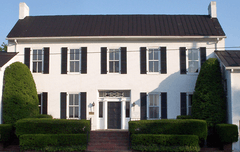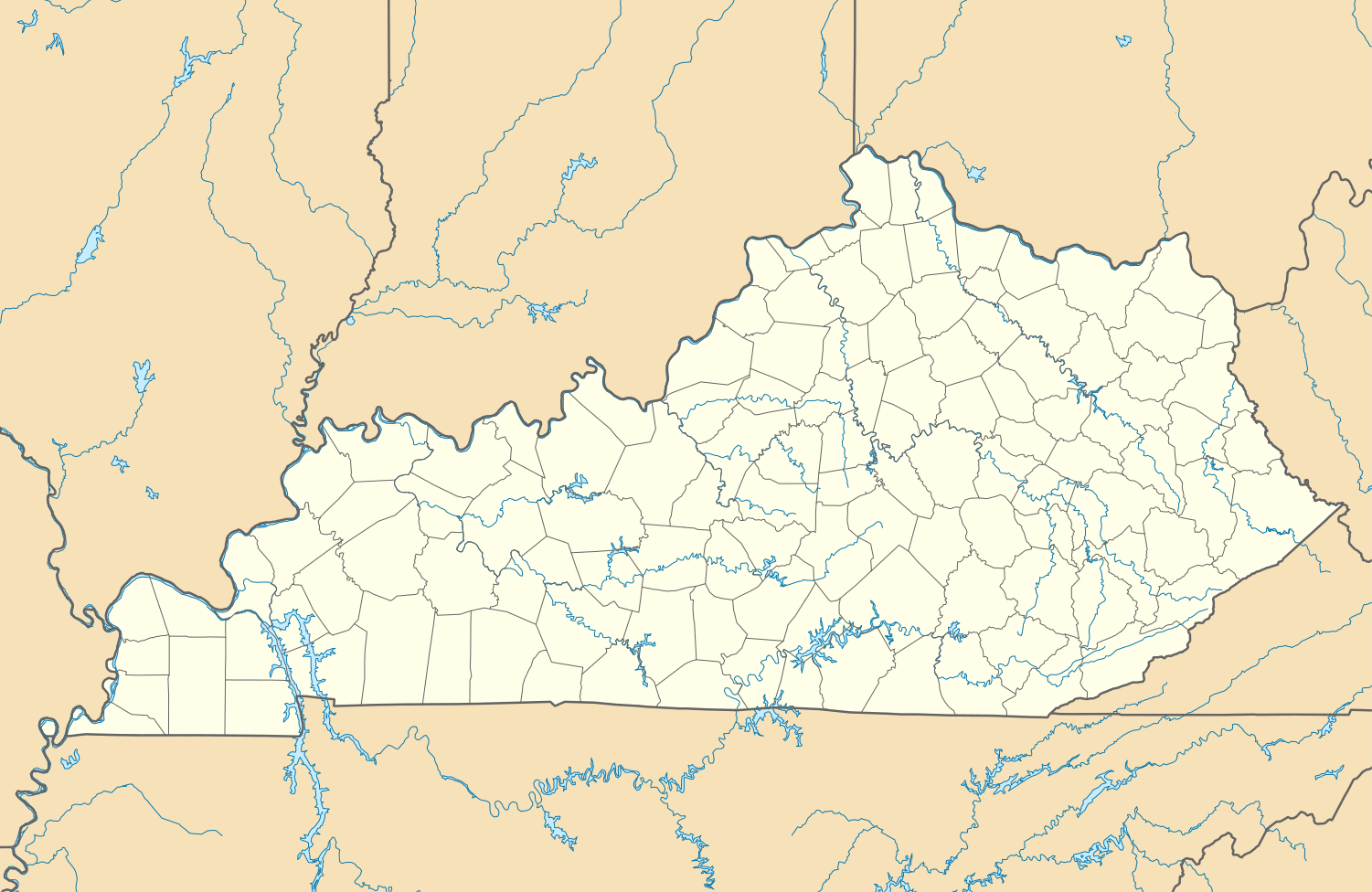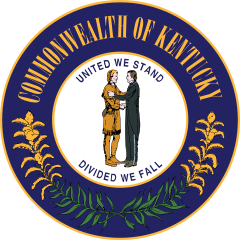William Forst House
|
William Forst House | |
 | |
  | |
| Location | Russellville, Kentucky |
|---|---|
| Coordinates | 36°50′42″N 86°53′21″W / 36.84500°N 86.88917°WCoordinates: 36°50′42″N 86°53′21″W / 36.84500°N 86.88917°W |
| Built | 1820 |
| Architect | Unknown |
| Architectural style | Federal |
| NRHP Reference # | 73000816[1] |
| Added to NRHP | July 19, 1973 |
The William Forst House, also known as the Clark House and the First-Clark House, is a historic house located in the Russellville Historic District of Russellville, Kentucky. Built in 1820, it made history between November 18 and 20, 1861, as the site where the Confederate government of Kentucky was formed.[2][3] It has been listed on the National Register of Historic Places since July 19, 1973.[1]
Description
The House is a two-story, five-bay, Federal style building made of brick. It presently has ten interior rooms. When first built, there were only five rooms and a 20-foot-long (6.1 m) hall. These were three 20-by-20-foot (6.1 m × 6.1 m) rooms and hall on the first floor, and on the second floor a 60-by-20-foot (18.3 m × 6.1 m) ballroom and another 20-by-20-foot (6.1 m × 6.1 m) room. As there were still fears of Indian attacks when the structure was built, there are no windows on the side of the building.[3]
The property has seen various changes over the years. In 1890 the interior staircase was replaced. The original kitchen, servant's quarters, and white-column front porch are long gone. A double-brick stairplace takes the place of the porch.[4] In 1964 additions were added for the continued use of the Clark family.[5]
History
The structure was built in 1820 by William First, later having his name altered to Forst, an immigrant from England believed to be a cabinetmaker. He built the home to show his expertise in millwork and mantels.[6] In November 1861, the Confederate Sovereignty Committee met at the house. Its 116 delegates from 65 Kentucky counties voted to secede from the Union, although the state capital at Frankfort, Kentucky was still in existence and chose to stay in the Union. Before leaving the home, George W. Johnson was elected by the delegates as the Confederate governor of Kentucky.[7]
From 1922 to 1942 it was used as a funeral home, under the ownership of Wister C. Clark. His widow turned the ballroom into apartments in 1960, and the bottom floor used as a law office for her son and his law partner.[8]
Notes
References
- Clark, J. Granville (1973). William Forst House NRHP Form. Russellville, Kentucky.
- Cronan, Mary (1976). Russellville Historic District NRHP Form. Russellville, Kentucky: Kentucky Heritage Council.
- Kleber, John E. (1992). The Kentucky Encyclopedia. University Press of Kentucky. ISBN 0-8131-1772-0.

.svg.png)